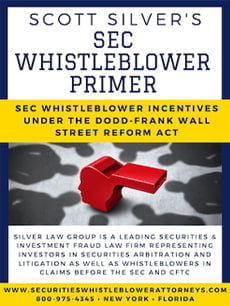The Investment Advisers Act Of 1940
The Investment Advisers Act of 1940, commonly known as the Advisers Act, regulates investment advisers.
The Advisers Act is administered and enforced by the Securities and Exchange Commission (SEC). A key goal of this federal statute is to monitor and set standards for those who advise investors, including individuals, pension funds, and institutions.
Definition of Investment AdviserThe Advisers Act defines an investment adviser as any person or firm that is:
- compensated for its services; and
- engaged in the business of providing investment advice, making recommendations, issuing reports, or furnishing analyses on securities, either directly or through publications.
This definition is subject to various exceptions, including lawyers, domestic banks, newspapers, and accountants, as well as certain exemptions (if, for example, an adviser is managing assets under $100 million).
Requirements of the Advisers ActAmong its most significant provisions, the Advisers Act requires that investment advisers must:
- be bound by a fiduciary duty to their clients, meaning that advisers must put the interests of their clients above their own interests;
- obtain the best possible prices in the buying and selling of securities in investment portfolios (“best execution”);
- disclose to their clients all material facts relating to an investment;
- establish, maintain, and enforce written policies and procedures reasonably designed to prevent the misuse of material, nonpublic information (MNPI) by the investment adviser; and
- register with the SEC, submit written materials relating to its investing practices to the SEC, and submit to periodic SEC examinations.
The Advisers Act also explicitly prohibits misstatements or misleading omissions of material facts and other fraud relating to the conduct of an investment advisor.
Common Violations of the Advisers ActAmong some of the most common violations of the Advisers Act are:
- investment in securities or assets that are in violation of investment polices;
- incorrectly valuing securities in its portfolios;
- inadequate written policies and procedures;
- inadequate or incomplete regulatory fillings;
- failure to maintain required books and records;
- fraud and theft of assets; and
- unnecessary trading of assets within portfolios.
Whistleblowers can play an important role in helping the SEC identify and prosecute violations of the Advisers Act or other provisions of federal securities laws. Whistleblowers can, however, experience challenges as cases proceed through the enforcement process, which can often be lengthy and complicated. This requires experienced SEC whistleblower lawyers to provide strategic advice, support, and a watchful eye.
Attorneys Scott Silver and David R. Chase are nationally recognized securities lawyers. They have extensive experience representing SEC whistleblowers.
Contact UsIf you think you qualify as a whistleblower for the SEC, contact us at 1-800-975-4345. You can also reach out online.
 Silver Law Group Home
Silver Law Group Home
